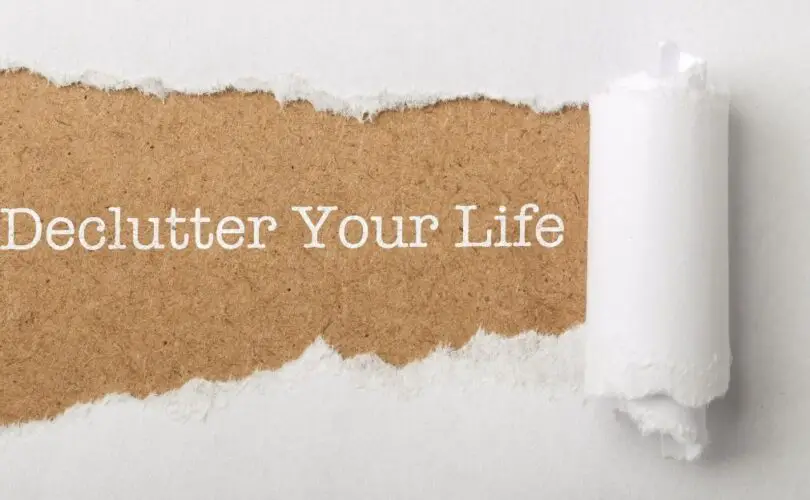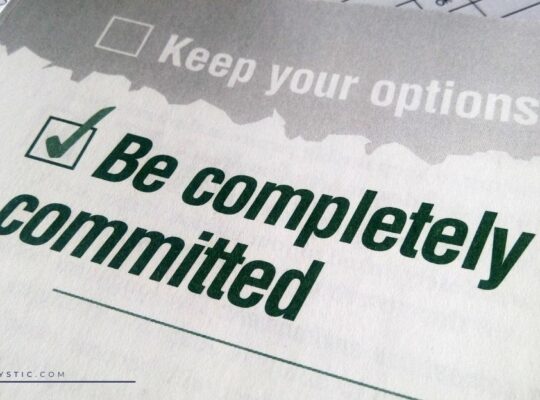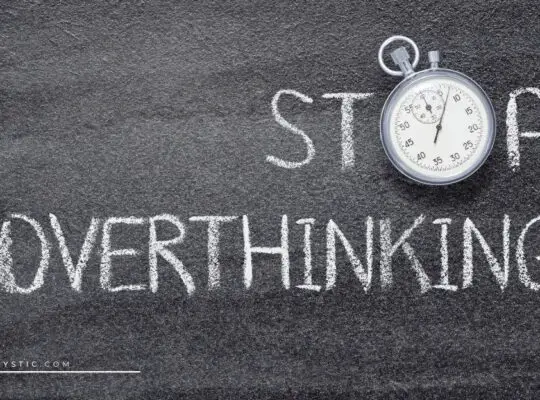What it Means To Declutter Your Life
When some of us think of “clutter,” we think of things that take up space in our homes or offices. But, what about things that take up space in our lives? All of us, from students to workers to mothers to retired persons can be subject to this “temporal clutter.” You may know what it means to declutter a physical space but what does it mean to declutter your life?
Visualizing Your Time
One of the reasons that makes it so easy to think about physical clutter or to declutter our homes is that we can see the clutter. This can horrify us when we see it all at once but it also allows us to plan a way to declutter.
The things that clutter our lives are immaterial things. They aren’t clothes and knickknacks and old papers; they are dates and times and commitments. These are things you can’t see, right?
In some ways, you can see them. You probably already have some kind of calendar or schedular but getting one that breaks the day up by hours is especially useful for beginning to declutter your life. Take one of these calendars and fill in your agenda. It can help to color-code different categories like work, errands, social events, and don’t forget about sleep and meals.
If you feel exhausted and like you can’t keep up with everything but your calendar looks pretty sparse, it could be that you need to work on the efficiency of things in your life rather than the amount of things in your life. On the other hand, if you have few blank spaces left or some of your events overlap, it may be time to think about decluttering your life.
What Commitments Do You Need to Commit to?
Decluttering a physical space usually means getting rid of trash or things that you don’t use or need anymore. Decluttering your life can be a similar process.
Look at your calendar. Some of the events, like some work or family commitments, are probably more or less set in stone. Other obligations may be things that you don’t really need to do or care to do but that were once important to you. Events like these are a good place to start when it comes time to cut events out of your schedule.
Be careful, however. It can be tempting to just cut out all of your social events. You may want or need to cut some but social events are important to your mental, emotional, and physical health. Try to keep at least one of these events per week.
Can You Move Anything Around?
Decluttering physical spaces isn’t just about throwing things away. It’s also about organizing things and putting them where they belong. Once you have identified your priority commitments, look at how they line up. If they are too close together or even overlap, try to get some of them rescheduled. Talk to your boss and see if you can come in and leave early, or raise a motion in your social or professional organizations to reschedule meetings.
Transportation is another area where you may be able to show some creativity to get everything to fit together. You might be able to wake up earlier to get some errands done on the way to work. You may be able to get your children in a carpool with other parents to sports or social events so that you can make it from work to a professional organization, &c. Never be afraid to draw on social resources available to you like friends or other family members.
Decluttering your life can be important. It maximizes what you are able to do in a day and helps to ensure that everything that you do in a day is worth seeing done. It doesn’t just mean cutting things out of your schedule, it means visualizing your day-to-day agenda and talking to other people in your life to make everything fit.
The Painful Consequences of a Cluttered Life
Everyone has a little clutter around their house from time to time, but when you constantly live in clutter it tends to seep into other areas of your life. Your cluttered life could be harming you, those you love, and others around you more than you think. It can cause you to treat them poorly, your work to suffer, and your mental, physical, and emotional health to worsen.
In this article, we’ll discuss what we mean by a cluttered life (it’s more than just house clutter) and the painful consequences of living that lifestyle.
What is a cluttered life?
When most people hear the term “clutter,” they immediately think of mess around their house, car, or office. While physical clutter can cause some problems for your physical, mental, and emotional health, it’s not the type of clutter we’re talking about.
A cluttered lifestyle can also be called an overworked lifestyle. It’s when you have far too much cluttering your days and your life that it’s detrimental to your own overall health. Those with a cluttered lifestyle tend to have a hard time telling people “no.” They volunteer for everything, taking on more than they need to, and often keep toxic people and habits around.
This type of clutter can cause many painful consequences and effect most of your life in a majorly negative way. In the sections that follow, we’ll list the consequences that living this lifestyle can cause.
1) Anxiety
Living a cluttered lifestyle can be extremely anxiety-inducing. This can cause you to overthink things, suffer adverse effects on your health, lose sleep, and could even cause panic attacks. Anxiety can cause you to take fewer risks, lose friends, abstain from things you would typically enjoy, and much more.
2) Excess Stress
Those who live a cluttered lifestyle exist in a highly-stressed state. They have so much going on, bogging down their mind that their brains simply can’t handle it. This stress can cause several horrible health issues including but not limited to heart attack, stroke, worsening gut health, etc. Stress can be a killer; the less of it you experience, the better.
3) Emotional Instability
Those that live a cluttered lifestyle have a tendency to constantly be on the edge, emotionally speaking. This can cause you to be overly upset by the slightest things, handle situations poorly, and struggle with others. It can make you snap at the slightest indiscretion and cry at the slightest disruption.
This can also cause more stress and anxiety for you as your mental state becomes less and less stable and weakens. You can experience worsened anxiety and depression, which can also have an adverse effect on your health.
4) Worsened Performance
The more stressed and anxious you become from your cluttered lifestyle, the worse your productivity and performance will be. You’ll feel drained and distracted, keeping you from doing your best work and maybe even keeping you from getting things done at all. Overworking yourself always damages your performance and productivity; it’s never worth it.
Living a cluttered lifestyle has several painful consequences. If you think you might be struggling with this, it’s time to take action and ask for help. It won’t be easy, but it’s beyond worth it. You have to diligently make the effort and stay after it in order to truly work through it.
We hope this article has helped you to identify this problem and give you the courage to address it. We encourage you to stick out this difficult challenge and see it through to the end and to seek out help if you require it in order to succeed.
How to Declutter Your Life
We usually think of “clutter” as things that take up space and get in the way in our homes. However, things can also take up space and get in the way in our lives and in our own minds. Like physical clutter, these things can make simple tasks harder and even make our lives more dangerous.
You might know how to declutter your home, but how do you declutter your life?
Identify the Problem
If you’re reading this, you’re already probably somewhere around the first step, which is identifying the problem. In your home, you can often see when things get cluttered and you know what clutter you can get rid of. This isn’t necessarily the case when it comes to clutter in your life so to do something about it you need to identify it.
What exactly is cluttering up your life? Is it anxieties over things that aren’t likely to happen? Is it strained relationships or “fake friends” that take up your time and don’t reward – or even damage – you? Only once you’ve identified this clutter can you begin to clean up.
Decide What to Keep and What to Get Rid of
Once you’ve identified the clutter in your life, decluttering your life is similar to decluttering your house. Go through everything in your schedule and decide what things you need and what things you would like to keep. Everything else, find a way to get rid of.
This might mean letting go of old grudges. It might mean ending old commitments that you no longer need or enjoy. It might mean breaking off relationships with people who complicate your life – even old friends or family members. It might mean talking to someone about your anxiety.
That brings us to the next step.
Talk to Your Family and Friends …
If you’re trying to declutter your home, you might recruit help from people who share that space, like your family members. If you have the means, you may even hire a cleaning service or call in an expert. Decluttering your life is no different.
Consider talking to your friends and family members. Let them know that your life has become a little too cluttered and you are working on cutting back things that take up your time and energy without giving back.
This can be a hard conversation but your family and friends can help to support you and help you work through this phase of your life.
… And Maybe an Expert
There are also times where you may find out that the things that are cluttering your life aren’t just things that you can cancel or walk away from. If you have a condition like depression or an anxiety disorder, your life may not feel like its cluttered, it may feel like it’s on fire. If your house is messy you can probably clean it yourself but if it’s on fire, you’d probably call in the experts. Your life is no different. If you think that you have depression or an anxiety disorder, talk to your primary call provider for a referral to a mental health expert. Once they’ve helped you put out the fire then you can worry about straightening things up a bit.
Even if you don’t have depression or an anxiety disorder, you may want to seek out this kind of help. Decluttering your life can be a bit overwhelming and there’s nothing wrong with reaching out for a more experienced hand.
In a lot of ways, decluttering your life is similar to decluttering your home. This is a helpful analogy but you shouldn’t let it downplay the importance and the difficulty of decluttering your life. When you decide to declutter your life, you’re making some big decisions and you shouldn’t be ashamed or afraid to take it slow, be patient with yourself, and reach out to your friends and family for support.







